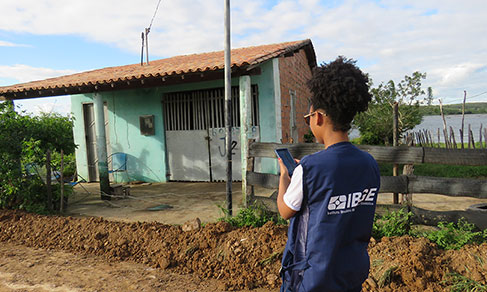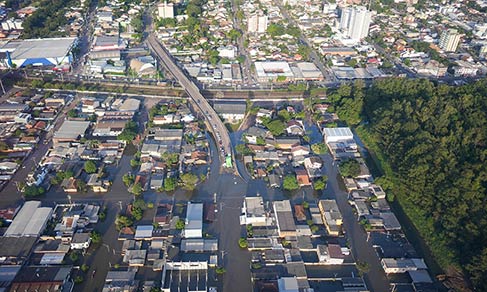Nossos serviços estão apresentando instabilidade no momento. Algumas informações podem não estar disponíveis.
CNEFE - National Address File for Statistical Purposes
About - 2010 Population Census
As the first public file of this nature in Brazil, the National Address File began to be developed in the 2000 Census, being improved in 2007 and consolidated in the 2010 Census, producing the product released herein. It adds up to 78,056,411 urban and rural addresses, distributed along 316,574 enumeration areas and classified by type: residential units, education units, health units and others. The National Address File is a list comprising only the addresses, without any corresponding economic or social information. It should be reminded that the addresses contain only the name of the street, number, complement and coordinates in the rural areas. The product was developed according to the international principle of confidentiality, in which the individual data collected by the statistical offices should be strictly confidential, either those related to physical or legal persons, and exclusively used for statistical purposes.
In the data collection of the 2000 Census, the enumerators took a printed map to guide them in their route and, as they covered the places, they took note of the addresses to apply the questionnaires. Part of this list, the urban addresses, originated the National Address File. In the 2007 census operations (Population Counting and Census of Agriculture), part of the addresses were updated, except for the areas belonging to 129 municipalities with more than 170 thousand inhabitants that were not included in the Population Counting, thus consolidating a list with nearly 42 million addresses.
The great technological leap of the National Address File was given in the 2010 Census, when the Territorial Base (urban and rural digital maps) was integrated into the National Address File, allowing even to geo-reference the units. At that time, the enumerators went to the field with PDAs (handheld computers) loaded with the digital mesh of the urban areas and with addresses associated to the map, being able to be updated according to the reality found.
Description
The National Address File for Statistical Purposes (CNEFE) is a nationwide database developed in 2005. This file comprises geo-referenced addresses of households and establishments in the entire country.
It is continually updated. As a whole, at each Population Census, and punctually, according to the demands from the File itself or from other IBGE surveys. The Continuous National Household Sample Survey (Continuous PNAD) and the Consumer Expenditure Survey (POF) are among those surveys.
In the CNEFE activity, addresses distributed along the entire Brazilian territory are registered both in the urban areas and in the rural ones. In these areas, the IBGE updates addresses located in regular and consolidated areas, as well as in areas of urban sprawl and of difficult access, where the registration of addresses tends to be fragile and not formalized. In addition to the data that locate the addresses in Brazil, the work consists of characterizing them according to their type, i.e., into different categories of households or establishments and according to the type of building they correspond, among other aspects.
In terms of dissemination, the CNEFE data follow the IBGE guidelines to assure the confidentiality of the statistical information. Therefore, elements that might identify informants or characterize households according to their occupation status are not released.
Downloads
News and Releases
2022 Census: Brazil has 106,8 million addresses and 22.8% of them do not have numbers
The IBGE releases today (14) the complete version of the National Address Files for Statistical Purposes...
14/06/2024
CNEFE: IBGE brings forward release of address list microdata to help administrators in Rio Grande do Sul
The IBGE moved to this Tuesday (21), the release of the microdata for the National Address List for Statistical...
21/05/2024





